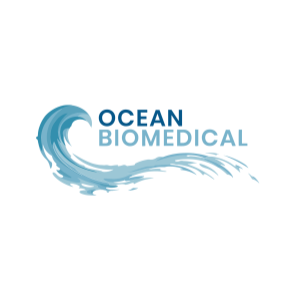Ocean Biomedical, Inc. (NASDAQ: OCEA) Announces Publication of New Data Deepening Understanding of Novel Cancer Immunotherapy Treatment Approach Targeting CHI3L1 and its Ability to Inhibit Anti-tumor and Related Tissue Remodeling Responses
Rhea-AI Summary
Ocean Biomedical (NASDAQ:OCEA) announced new research published in the Journal of Immunology by Scientific Co-founder Dr. Jack A. Elias and colleagues. The study expands understanding of how CHI3L1 inhibits the body's natural immune responses to lung cancers and related diseases like COPD. It demonstrates for the first time how CHI3L1 inhibits macrophage phagocytosis by stimulating two key phagocytosis checkpoint pathways.
The research suggests that CHI3L1-targeted therapeutics are promising interventions in cancer, COPD, and other disorders. Ocean Biomedical's monoclonal antibody is part of a unique oncology platform working to activate natural cancer immune responses by suppressing Chi3L1, with potential for broad application. The company has been granted patent allowance for multiple cancer types, including Prostate, Colon, Rectal, Ovarian, Kidney, Breast, Glioblastoma, Melanoma, and Lung Cancer.
Positive
- New research expands understanding of CHI3L1's role in inhibiting immune responses to cancer
- Ocean Biomedical's monoclonal antibody shows potential for broad application in cancer treatment
- Patent allowance granted for multiple cancer types, expanding potential market reach
- In-vivo testing has shown efficacy in humanized mouse models
Negative
- None.
News Market Reaction – OCEA
On the day this news was published, OCEA declined 5.10%, reflecting a notable negative market reaction.
Data tracked by StockTitan Argus on the day of publication.
Ocean Biomedical’s Anti-CHI3L1 patent coverage includes multiple methods of use for targeting a broad range of Cancers that include Lung Cancer, Glioblastoma, Prostate Cancer, Melanoma, and Breast Cancer
Providence, RI, Oct. 01, 2024 (GLOBE NEWSWIRE) -- Ocean Biomedical (NASDAQ:OCEA) announced today that Scientific Co-founder Dr. Jack A. Elias, MD, PhD, and colleagues have published new research in the Journal of Immunology that expands understanding of how CHI3L1 inhibits the body’s natural immune responses to lung cancers and related diseases such as chronic obstructive pulmonary disease (COPD). This research demonstrates for the first time the complex ways that CHI3L1 inhibits macrophage phagocytosis by stimulating two key phagocytosis checkpoint pathways. The paper notes, “This inhibition of innate immune responses such as phagocytosis provides a mechanistic explanation for the ability of CHI3L1 to stimulate immune checkpoint inhibitors (ICPs) and inhibit essential adaptive immune responses in cancer and COPD. The ability of CHI3L1 to simultaneously inhibit innate immune responses, stimulate ICPs, inhibit T cell costimulation, and regulate a number of other oncogenic and inflammation pathways suggests that CHI3L1-targeted therapeutics are promising interventions in cancer, COPD, and other disorders.” Dr. Elias’ research has shown that the inhibition of CHI3L1 diminishes natural adaptive immune responses and reduces cancer growth in vivo in standard and humanized mouse models.
Ocean Biomedical’s monoclonal antibody is one piece of a unique oncology platform that is working to build multiple approaches to activating natural cancer immune responses by suppressing Chi3L1, with potential for broad application. The patent allowance has been granted for Prostate Cancer, Colon Cancer, Rectal Cancer, Ovarian Cancer, Kidney Cancer, Breast Cancer, Glioblastoma, Melanoma, and Lung Cancer.
“This pathway discovery is an unprecedented leap forward, because if you control Chi3L1, you don’t just control one anti-cancer pathway, you simultaneously control many anti-cancer pathways,” said Dr. Jack A. Elias. “Uncovering the mechanisms by which CHI3L1 works will help us drive cancer research, and eventually treatment and patient outcomes, forward.”
Dr. Jack A. Elias is the former Chair of Yale’s Department of Medicine, and the Dean Emeritus of Medicine and Biological Sciences at Brown University. He is a leading pulmonary care specialist and research pioneer. In 2019 he founded Ocean Biomedical with several Brown University colleagues and alums to help address major unmet medical needs by accelerating more discovery science into needed therapeutics.
“This is one more step in a systematic progression towards IND-enabling studies that we hope will move us towards new cancer therapeutics,” commented Ocean Biomedical CEO Elizabeth Ng. “It is exciting because our in-vivo testing has already shown efficacy in humanized mouse models, and we know that this major regulating mechanism is at work in so many cancers.
“We are excited to see Dr. Elias’ work receive this important validation, and we hope to continue deepening our understanding of the CHI3L1 pathways to help us apply our patented technology for the good of patients globally,” commented Dr. Chirinjeev Kathuria, Ocean Biomedical’s Chairman and Co-founder.
About Ocean Biomedical
Ocean Biomedical, Inc. is a Providence, Rhode Island-based biopharma company with an innovative business model that accelerates the development and commercialization of scientifically compelling assets from research universities and medical centers. Ocean Biomedical deploys the funding and expertise to move new therapeutic candidates efficiently from the laboratory to the clinic, to the world. Ocean Biomedical is currently developing five promising discoveries that have the potential to achieve life-changing outcomes in lung cancer, brain cancer, pulmonary fibrosis, and the prevention and treatment of malaria. The Ocean Biomedical team is working on solving some of the world’s toughest problems, for the people who need it most.
To learn more, visit www.oceanbiomedical.com.
Forward-Looking Statements
The information included herein and in any oral statements made in connection herewith include “forward-looking statements” within the meaning of the “safe harbor” provisions of the United States Private Securities Litigation Reform Act of 1995. Forward-looking statements may be identified by the use of words such as “estimate,” “plan,” “project,” “forecast,” “intend,” “will,” “expect,” “anticipate,” “believe,” “seek,” “target” or other similar expressions that predict or indicate future events or trends or that are not statements of historical matters, although not all forward-looking statements contain such identifying words. These forward-looking statements include, but are not limited to, statements regarding estimates and forecasts of financial and performance metrics and expectations. These statements are based on various assumptions, whether or not identified herein, and on the current expectations of the Company’s management and are not predictions of actual performance. These forward-looking statements are provided for illustrative purposes only and are not intended to serve as, and must not be relied on by any investor as, a guarantee, an assurance, a prediction or a definitive statement of fact or probability. Actual events and circumstances are difficult or impossible to predict and will differ from assumptions.
The announced discoveries were based solely on laboratory and animal studies. Ocean Biomedical has not conducted any studies that show similar efficacy or safety in humans. There can be no assurances that this treatment will prove safe or effective in humans, and that any clinical benefits of this treatment is subject to clinical trials and ultimate approval of its use in patients by the FDA. Such approval, if granted, could be years away.
Forward-looking statements are predictions, projections and other statements about future events that are based on current expectations and assumptions and, as a result, are subject to risks and uncertainties. These forward-looking statements are not guarantees of future performance, conditions or results, and involve a number of known and unknown risks, uncertainties, assumptions and other important factors, many of which are outside the control of the Company that could cause actual results or outcomes to differ materially from those discussed in the forward-looking statements. Important factors, among others, that may affect actual results or outcomes include (i) the outcome of any legal proceedings that may be instituted against the Company; (ii) changes in the markets in which the Company competes, including with respect to its competitive landscape, technology evolution, or regulatory changes; (iii) changes in domestic and global general economic conditions; (iv) risk that the Company may not be able to execute its growth strategies; (v) risks related to the ongoing COVID-19 pandemic and response, including supply chain disruptions; (vi) risk that the Company may not be able to develop and maintain effective internal controls; (vii) the risk that the Company may fail to keep pace with rapid technological developments to provide new and innovative products and services or make substantial investments in unsuccessful new products and services; (viii) the ability to develop, license or acquire new therapeutics; (ix) the risk that the Company will need to raise additional capital to execute its business plan, which may not be available on acceptable terms or at all; (x) the risk that the Company experiences difficulties in managing its growth and expanding operations; (xi) the risk of product liability or regulatory lawsuits or proceedings relating to the Company’s business; (xii) the risk of cyber security or foreign exchange losses; (xiii) the risk that the Company is unable to secure or protect its intellectual property.
The foregoing list of factors is not exhaustive. You should carefully consider the foregoing factors and the other risks and uncertainties that are described in the Company’s Annual Report on Form 10-K for the year ended December 31, 2021 and its Quarterly Report on Form 10-Q for the quarter ended September 30, 2022, and which are described in the “Risk Factors” section of the Company’s definitive proxy statement filed by the Company on January 12, 2023, and other documents to be filed by the Company from time to time with the SEC and which are and will be available at www.sec.gov. These filings identify and address other important risks and uncertainties that could cause actual events and results to differ materially from those contained in the forward-looking statements. Forward-looking statements speak only as of the date they are made. Readers are cautioned not to put undue reliance on forward-looking statements. These forward-looking statements should not be relied upon as representing the Company’s assessments as of any date subsequent to the date of this filing. Accordingly, undue reliance should not be placed upon the forward-looking statements.
Ocean Biomedical Investor Relations info@oceanbiomedical.com
Ocean Biomedical Media Relations connect@oceanbiomedical.com








